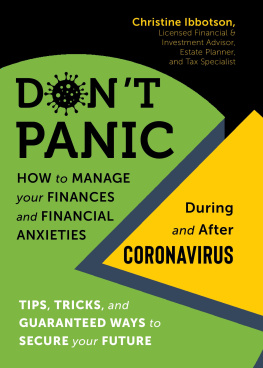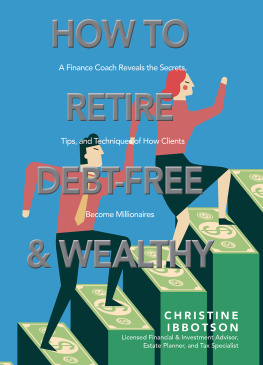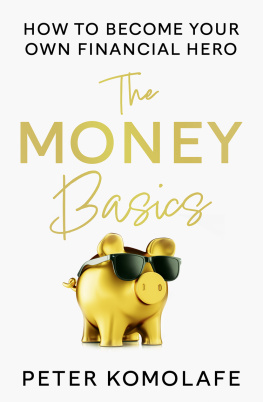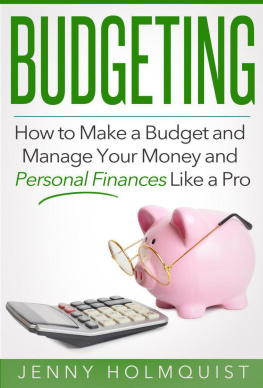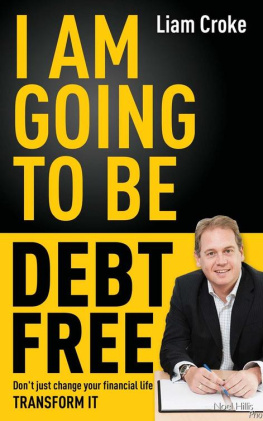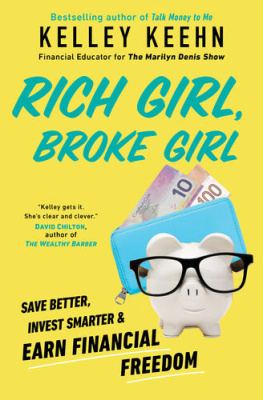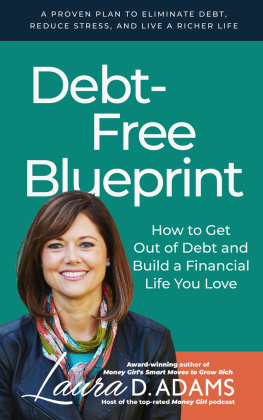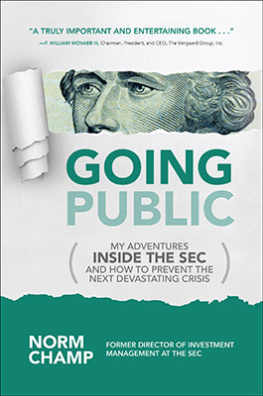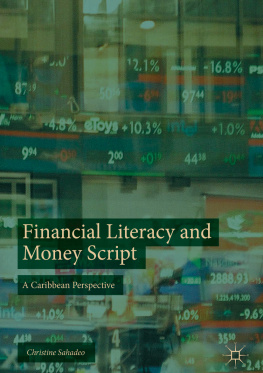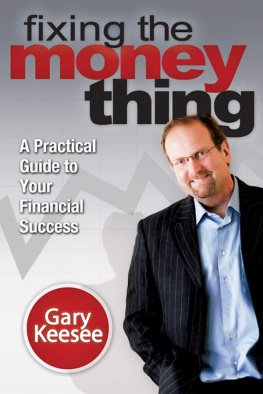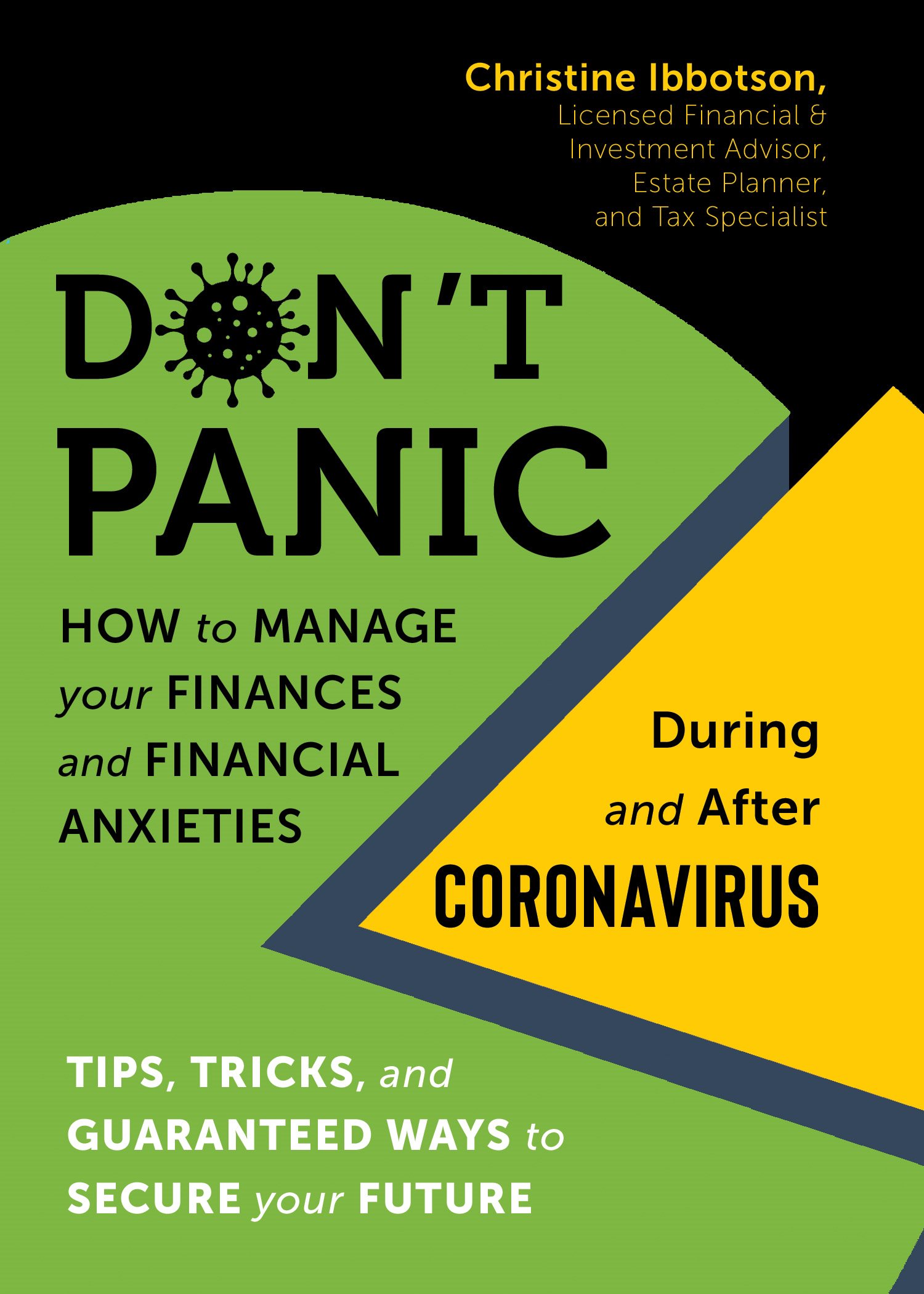Copyright 2020, Christine Ibbotson
All rights reserved. No part of this book may be reproduced, stored in a retrieval system or transmitted in any form or by any means without the prior written permission from the publisher, or, in the case of photocopying or other reprographic copying, permission from Access Copyright, 1 Yonge Street, Suite 1900, Toronto, Ontario M5E 1E5.
Nimbus Publishing Limited
3660 Strawberry Hill Street, Halifax, NS, B3K 5A9
(902) 455-4286 nimbus.ca
Printed and bound in Canada
NB1550
Edited by Angela Mombourquette
Design by Heather Bryan
Library and Archives Canada Cataloguing in Publication
Title: Dont panic : how to manage your finances and financial anxieties during and after coronavirus : tips, tricks, and guaranteed ways to secure your future / Christine Ibbotson, Licensed Financial Advisor.
Other titles: Do not panic : how to manage your finances and financial anxieties during and after coronavirus : tips, tricks, and guaranteed ways to secure your future | How to manage your finances and financial anxieties during and after coronavirus : tips, tricks, and guaranteed ways to secure your future | Tips, tricks, and guaranteed ways to secure your future
Names: Ibbotson, Christine, author. Identifiers: Canadiana (print) 20200213458 | Canadiana (ebook) 20200213482 | ISBN 9781771089050 (softcover) |
ISBN 9781771089043 (HTML) Subjects: LCSH: Finance, PersonalHandbooks, manuals, etc. | LCSH: RetirementPlanningHandbooks, manuals, etc. | LCGFT: Handbooks and manuals. Classification: LCC HG179 .I23 2020 | DDC 332.024dc23
Nimbus Publishing acknowledges the financial support for its publishing activities from the Government of Canada, the Canada Council for the Arts, and from the Province of Nova Scotia. We are pleased to work in partnership with the Province of Nova Scotia to develop and promote our creative industries for the benefit of all Nova Scotians.
Pandemic Panic Is This Really Happening?
I n a scenario that could be straight out of a movie, COVID-19 (the disease caused by the novel coronavirus) has become a worldwide pandemic that is leaving people feeling panicked and displaced. We have all seen the empty grocery store shelves, with some banks even running out of cash because so many people have made withdrawals. Many people are in a state of near-hysteriaand how can we blame them? Information about the spread of the virus keeps changing by the hour. With a constant stream of social media and news updates, many of us are feeling overwhelmed.
As the virus is transmitted to more and more people, we may see our social infrastructure become even more strained. With the exception of essential services, businesses large and small have closed their doors. All bars, restaurants, theatres, sport and concert venues have been shut down, and live performances cancelled. To add to this, all schools, daycares, and child care centres have also been closed, forcing parents to scramble. Governments worldwide have recommended social distancing and have told us to just stay home.
So how did this happen?
The world witnessed the first outbreak in the bustling commercial city of Wuhan, China, where it is believed that an animal-to-human transmission may have occurred at a live animal market in December 2019. On December 31, 2019, China alerted the World Health Organization to several cases of an unusual pneumonia in Wuhan, and on January 11, 2020, Chinese state media reported the first known death from an illness caused by the virus. (A scientific paper published in January 2020 challenged the idea that the virus first surfaced at that market, suggesting that it may have spread between people in Wuhanand perhaps elsewherebefore that cluster of cases was discovered in late December.)
The virus was being spread person-to-person. As the pandemic quickly grew, by March 25, 2020, there were more than 430,000 reported cases worldwide, and that number was growing exponentially every day. More than 160 countries and every continent except Antarctica has been affected.
According to the US Centers for Disease Control and Prevention, the virus is thought to be spread mainly via the droplets that are produced when an infected person coughs or sneezes on someone who is within about two metres of them. Some spread might be possible before infected people show symptoms, but thats probably not the main way the virus spreads. It may also be possible that a person can get COVID-19 by touching a surface or object that has the virus on it and then touching their own mouth, nose, or eyes, but this also isnt thought to be the main way the virus spreads.
Washing our hands and disinfecting surfaces have become common practices as the virus continues to spread. We are inundated with daunting news stories, and How to properly wash your hands has become a major topic in the media. Because so many people are in self-solation or are practicing social distancing, some towns, villages, and even cities appear empty, creating a sense of ghostly eeriness.
We now see countries closing their borders, banning air travel, and in some cases denying entry to anyone who is not a citizen or permanent residentsteps that had previously been considered a last resort.
Research into a vaccine is ongoing, but for many, it cant come soon enough, especially for those most in need. People with chronic medical conditions, weakened immune systems, and older people are at the greatest risk of dying if they become infected.
Many of us who suddenly have all this extra time on our hands are wondering what to do about money. How will we pay our rent or mortgage, and how can we put food on the table? What happens if we get sick, too? We are told that our hospitals may be overwhelmed by the greater demand, and that other sectors such as law enforcement, supply chains, medical services, and transportation could be severely affected.
The cancellation and curtailment of public activities to mitigate the impact of this virus is having a tremendous impact on business, commerce, and financial markets. We are now facing a potential global financial crisis anddare I sayan imminent recession.
Are You Worried About Making the Rent?
Today the majority of people live paycheque to paycheque, and worrying about personal finances can create a lot of anxietyespecially now that we have to deal with the COVID-19 pandemic.
As the pandemic continues, some fortunate people will be able to keep earning income as they work from home. But for others there is more uncertainty. If your employer is a small business that plans to stop paying you during this time, or if you are self-employed, on contract, or generally work for cashwhat will you do?
I am pleased to see that governments are stepping up in this crisis to protect workers as well as business owners. Governments have funnelled billions of dollars into our financial systems to ensure that banks can continue to lend, and banks have been encouraged to suspend mortgage payments for customers over the next few months. If you live in Canada, the US, or the UK, your governments have ensured that lending institutions and large banks can provide a three- to six-month mortgage and loan suspension for their customers. This is further supported by governments lowering their central bank rates to ensure that lenders keep interest rates low for future borrowing.

